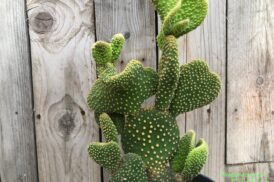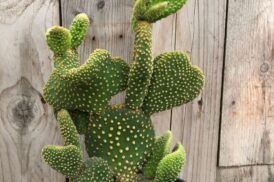
Hylocereus undatus “Seoul Kitchen”
€19.95
| Min Temp : | +10°C |
| Location: | Sunny |
| Water requirements : | Medium to low |
| Flowering period : | Summer |
| Scented : | No |
| Edible: | Yes, fruit |
| Use: | Container / Houseplant |
| Evergreen: | Yes |
| Height: | Up to 2m, climbing or hanging |
Description
Pitaya, also known as dragon fruit, is a tropical fruit that comes in a variety of varieties. “Pitaya Seoul Kitchen” refers to a specific cultivar of dragon fruit that is known for its striking appearance and pleasant flavor.
Characterize
The Seoul Kitchen dragon fruit usually has a vibrant pink or magenta skin with green scales. When you cut it open, you’ll find white flesh with small, edible black seeds.
This variety is known for its sweet taste. It is often described as a mix between a kiwi and a pear, with a soft texture.
The fruits are medium to large and often weigh between 1 and 1.5 pounds (450 to 675 grams).
Growing conditions
Dragon fruit thrives in tropical and subtropical climates. It prefers temperatures between 18°C and 29°C (65°F and 85°F) and can tolerate some drought, although it will require regular watering during the growing season.
Well-drained soil is essential to prevent root rot. A sandy or loamy soil with a good organic matter content is ideal.
Full sun is best, but it can also grow in partial shade. Make sure the plant gets at least 6-8 hours of sunlight daily for optimal fruit yield.
As a climbing cactus, the pitaya plant needs a supporting structure to grow on, such as a trellis or a pole.
Care and Maintenance
Water the plant regularly, but avoid overwatering. Allow the soil to dry out between waterings to prevent root rot.
Regular feeding with a balanced fertilizer can promote growth and fruit yield. Organic compost or a slow-release fertilizer works well.
Pruning helps manage the size of the plant and encourages more fruit yields. Remove damaged or overcrowded stems.



